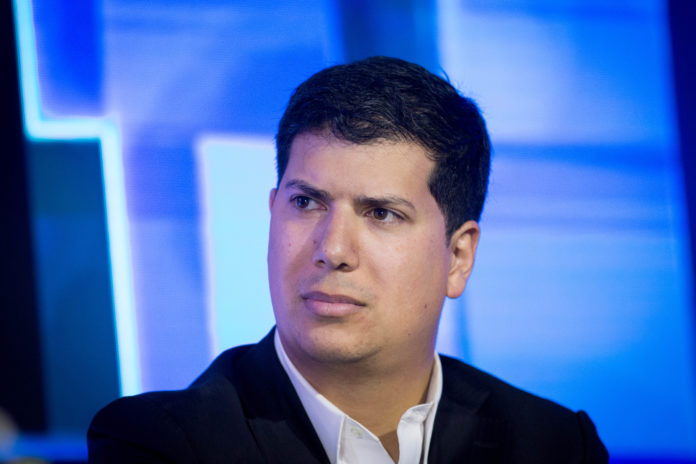
The office block at Number 2 Weizmann Street in Tel Aviv stands out from the surrounding landscape with its distinctive triangular shape. Some say that its design is modeled on the punching cards once used by IBM, which constructed the building in the 1970s for the branch it was then opening in Israel. In recent years, the tower block has become a magnet for lawyers seeking chambers due to its proximity to the District Court. Office rents are high in this building, and the higher up you go, the higher they get. On the top floor we enter the spacious offices of attorney Amit Hadad.
Hadad is just 36 years old, but he has already accumulated a vast array of experience in his field, working under attorney Yaakov Weinroth, z”l, who was considered one of the most prominent attorneys in Israel. When Hadad started out under Weinroth, he became known as the “wunderkind of the legal world.” Today he is married and a father of two, but he tells me, “Inside, I still feel like the kid I was back then. I haven’t changed—or maybe I grew up just a bit.”
Hadad is currently handling the very high-profile Case 1,000, which is being heard in the Jerusalem District Court. This is one of three cases against former Prime Minister Binyamin Netanyahu, in which he stands accused of illegally accepting gifts from billionaires Arnon Milchan and James Packer. During hearings, the courthouse is invariably packed with journalists and curious people who are eager to follow the proceedings. We’d arranged to meet in his office on a Thursday, “at the end of the week, with Biden in Israel and no one focused on Netanyahu. Maybe then we’ll be able to talk in peace,” Hadad had said.
Peaceful it was not, despite the early evening hour; the office was still open, the phones were ringing, and Hadad was summoned several times to provide his opinion, arrange interviews, and offer advice to other lawyers who work in his office. At least the sunset over the horizon off the Tel Aviv beach, clearly visible from his office windows, softened the atmosphere somewhat.
“Can we talk about Case 1,000 first?” I ask.
He recoils. “Look, however much I’d like to talk about it, there is such a thing as client-lawyer confidentiality. The case is currently being heard in court, and I can’t talk about it. I can talk about the Netanyahu cases in general if you like.”
“What can you tell me in general terms?”
“In my opinion, the accusations will be revealed as baseless lies,” he says. “Take Case 1,000, for example, and break it down into its component parts—which is in fact what we’re doing right now, among other things, in our cross-examination of the main state witness, Hadas Klein. The accusations are that Netanyahu illegally received gifts worth billions, but once you get into the details, you soon find out that the connection between Milchan and Netanyahu dates back to 1999, when Netanyahu left office after losing the election to Ehud Barak. What did Milchan stand to gain from such a friendship? It doesn’t even come into the category of casting your bread upon the waters [expecting an eventual payoff], because in those days in Israel, someone who had left politics was considered a has-been.




















